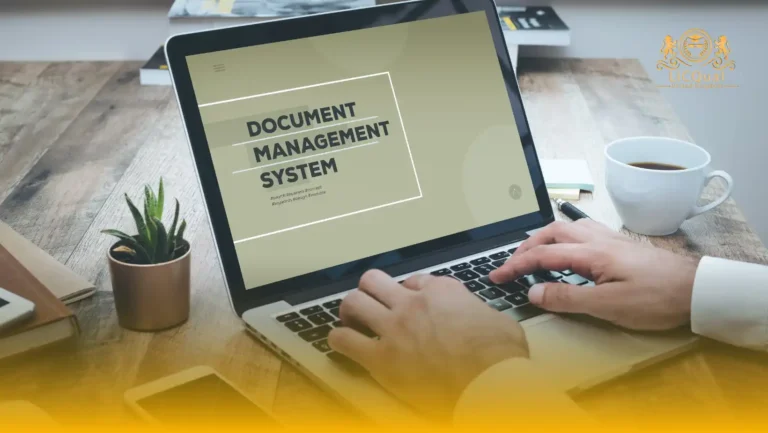In today’s data-driven economy, the ability to manage and utilize information effectively is more critical than ever. The LICQual Level 3 Certificate in Information Management Systems is a comprehensive and career-focused qualification designed to equip applicants with the essential skills and knowledge to navigate and excel in the evolving landscape of information systems. Whether you’re looking to advance your current role or pursue new opportunities, this course serves as a solid foundation for success.
This course explores the fundamental principles of Information Management Systems, providing a robust understanding of how organizations capture, store, manage, and use data to make informed decisions. Through real-world examples, interactive learning modules, and case-based scenarios, students will gain practical insights into the core components that define modern information systems and their strategic value to businesses.
The LICQual Level 3 Certificate is ideal for aspiring IT professionals, administrative staff, data coordinators, and business support personnel seeking to enhance their knowledge and credentials. With a strong emphasis on both theoretical and applied learning, the course bridges the gap between conceptual understanding and practical application in real organizational settings.
Delivered through a flexible learning model, this certificate program enables participants to study at their own pace while receiving guidance from experienced tutors and industry professionals. The course content is aligned with global best practices in Information Management Systems, ensuring relevance, quality, and international recognition.
By the end of this qualification, applicants will possess a thorough grasp of key topics such as data governance, database management, information security, and system analysis. These competencies are highly valued in today’s digital economy, where the demand for skilled professionals in Information Management Systems continues to grow across sectors.
If you’re ready to build a career that combines technology, management, and strategy, the LICQual Level 3 Certificate in Information Management Systems is the ideal next step.
Course Overview
Qualification Title
LICQual Level 3 Certificate in Information Management Systems
Total Units
6
Total Credits
24
GLH
120
Qualification #
LICQ2200423
Qualification Specification
To enroll in the LICQual Level 3 Certificate in Information Management Systems applicants must meet the following criteria:
|
Qualification# |
Unit Title |
Credits |
GLH |
|---|---|---|---|
|
LICQ2200423-1 |
Advanced Information Management Strategies |
4 |
20 |
|
LICQ2200423-2 |
Business Intelligence and Data-Driven Decision Making |
4 |
20 |
|
LICQ2200423-3 |
Designing and Implementing System Controls |
4 |
20 |
|
LICQ2200423-4 |
Managing Digital Transformation and Innovation |
4 |
20 |
|
LICQ2200423-5 |
Ensuring Data Quality and Integrity |
4 |
20 |
|
LICQ2200423-6 |
Information Systems Project Planning and Evaluation |
4 |
20 |
By the end of this course, learners will be able to:
1. Advanced Information Management Strategies
Learning Outcomes:
- Evaluate strategic approaches to managing organizational information resources.
- Analyze the role of information management in achieving business objectives.
- Develop frameworks for aligning information systems with organizational strategy.
- Apply advanced techniques to enhance the effectiveness of information management processes.
2. Business Intelligence and Data-Driven Decision Making
Learning Outcomes:
- Explain the principles and components of business intelligence systems.
- Interpret data analytics results to support strategic and operational decisions.
- Utilize tools and techniques to transform raw data into actionable insights.
- Assess the impact of data-driven decision-making on organizational performance.
3. Designing and Implementing System Controls
Learning Outcomes:
- Identify various types of system controls used in information management systems.
- Design appropriate control mechanisms to ensure data confidentiality, integrity, and availability.
- Implement system controls to mitigate risks and support compliance.
- Evaluate the effectiveness of control systems within a given organizational context.
4. Managing Digital Transformation and Innovation
Learning Outcomes:
- Define key concepts in digital transformation and their relevance to modern organizations.
- Analyze the challenges and opportunities of adopting digital innovations.
- Develop strategies for leading successful digital transformation initiatives.
- Assess the organizational impact of emerging technologies in information systems.
5. Ensuring Data Quality and Integrity
Learning Outcomes:
- Describe the principles and dimensions of data quality.
- Apply techniques for data validation, cleansing, and standardization.
- Implement policies to maintain the integrity of data across systems.
- Monitor and evaluate data quality management practices within an organization.
6. Information Systems Project Planning and Evaluation
Learning Outcomes:
- Outline the stages of the information systems project lifecycle.
- Develop project plans including scope, timeline, and resource allocation.
- Use project evaluation techniques to measure outcomes and performance.
- Apply risk assessment and mitigation strategies in project environments.
This diploma is ideal for:
- Individuals seeking to build a foundational yet advanced understanding of Information Management Systems.
- Entry-level IT professionals aiming to enhance their career prospects in data and information systems management.
- Administrative staff and office personnel who handle organizational data and wish to improve their technical and analytical skills.
- Recent school leavers or college graduates looking to pursue a career in information systems, business intelligence, or digital transformation.
- Professionals transitioning into the information management field from non-technical backgrounds.
- Business support staff responsible for handling, analyzing, or reporting data within their departments.
- Learners preparing for higher-level studies in information technology, systems analysis, or data management.
- International learners who want an industry-relevant, globally recognized qualification in Information Management Systems.
- Entrepreneurs and small business owners seeking to implement effective data strategies and system controls within their operations.
- Anyone interested in understanding how to use information systems to drive innovation, improve decision-making, and support organizational goals.
Assessment and Verification
All units within this qualification are subject to internal assessment by the approved centre and external verification by LICQual. The qualification follows a criterion-referenced assessment approach, ensuring that applicants meet all specified learning outcomes.
To achieve a ‘Pass’ in any unit, applicants must provide valid, sufficient, and authentic evidence demonstrating their attainment of all learning outcomes and compliance with the prescribed assessment criteria. The Assessor is responsible for evaluating the evidence and determining whether the learner has successfully met the required standards.
Assessors must maintain a clear and comprehensive audit trail, documenting the basis for their assessment decisions to ensure transparency, consistency, and compliance with quality assurance requirements.







